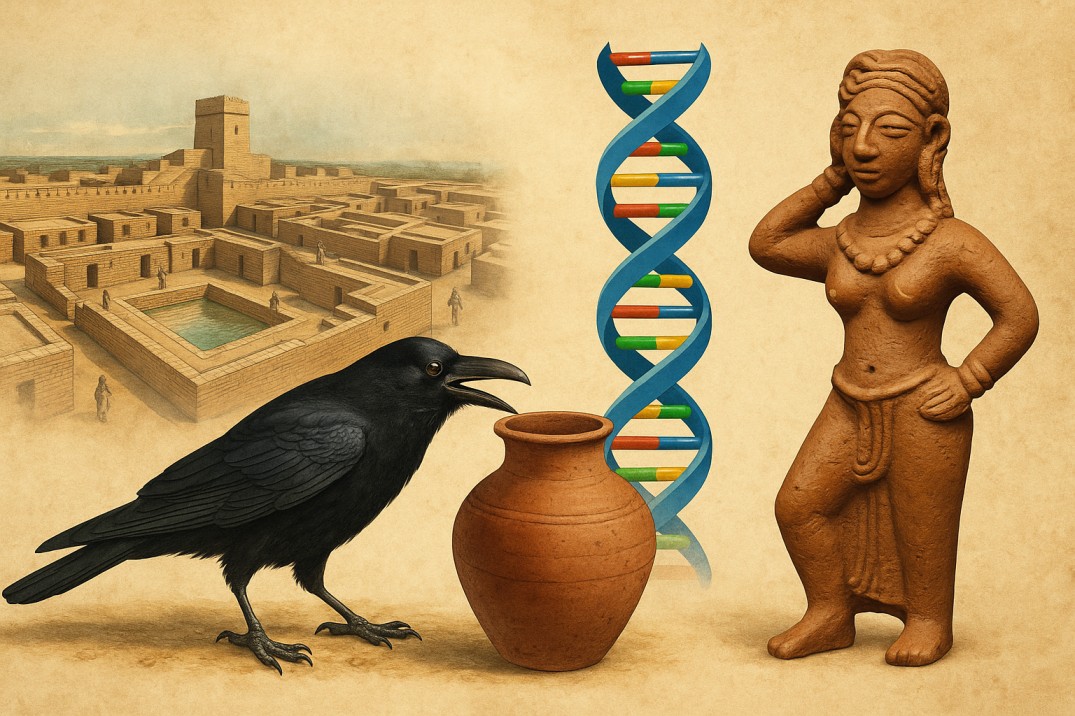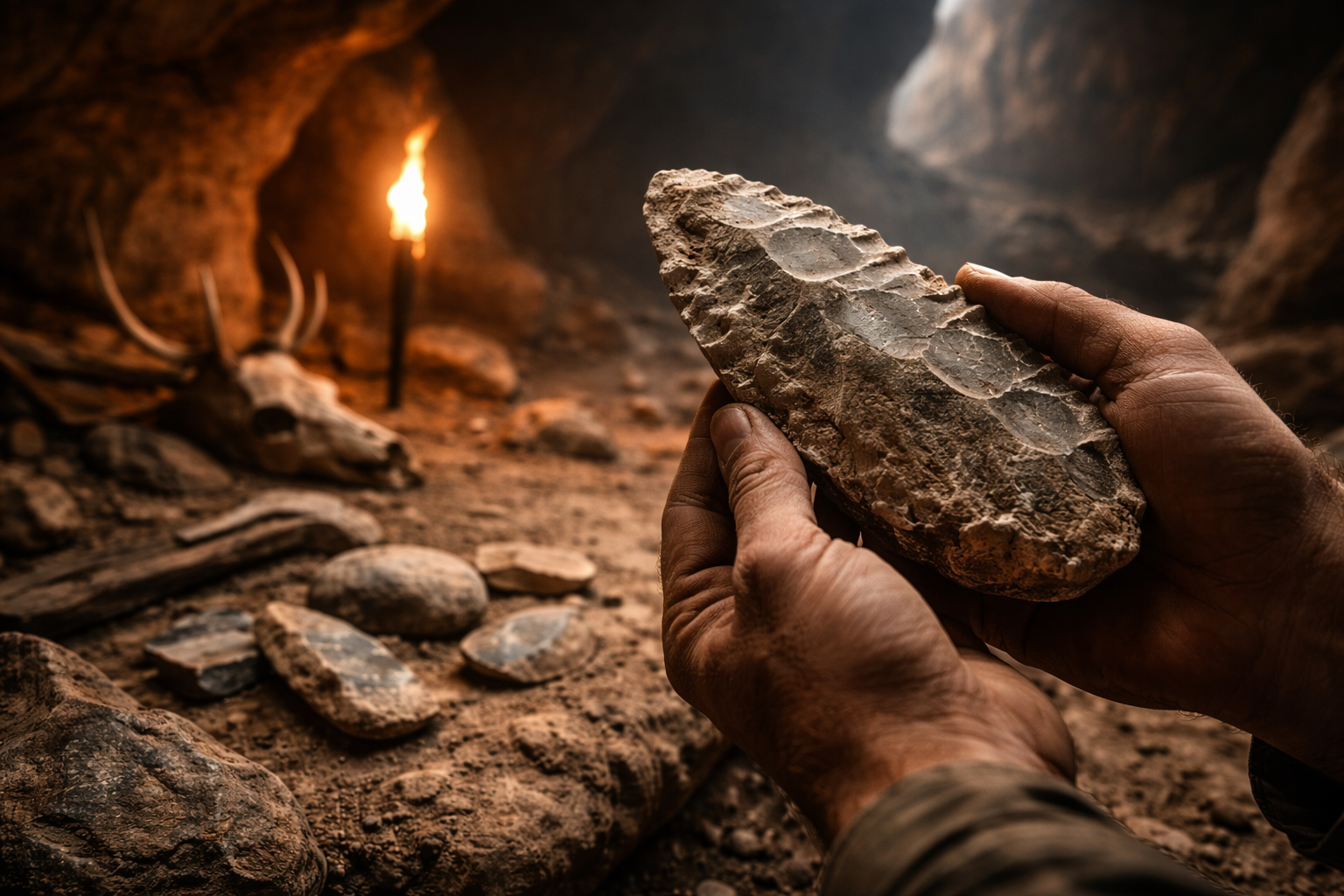Harappans’ contribution to ancient Indian knowledge — diluted or exaggerated
Prof. Vasant Shinde, Cell, Oct 2019
Source: The Print, Sept 14, 2024
Background of the Study
In discussions of the Indic Knowledge System (IKS), the contributions of Harappan people are often misrepresented—either diluted or exaggerated. Prof. Vasant Shinde emphasizes the need for authenticity in reconstructing the civilizational heritage of ancient India.
Key Findings
🔑 Advanced Urban Practices
Harappans, over 5,000 years ago, pioneered well-planned towns equipped with toilets and sewage systems. These practices challenge the notion that such innovations were exclusively Western imports, proving that the Indus people were equally advanced.
🔑 Knowledge Transmission Beyond Borders
Shinde argued that many so-called “modern” civilised practices can be traced back to Harappan traditions. This reframes our understanding of India’s intellectual and cultural history.
🔑 The Thirsty Crow Fable
To illustrate his point, Shinde highlighted parallels between global folklore. While the famous thirsty crow story is attributed to Aesop (6th century BCE), depictions of the same tale were found on ceramic pots at Lothal (3300 BCE). This suggests much earlier South Asian origins, later adapted in Panchatantra.
🔑 DNA and Genetic Gaps
Reconstructing Harappan identity is hampered by limited DNA evidence. Only one sample, a 5,000-year-old woman, has been sequenced so far. It revealed ancestry linked to ancient Iranians (major component) and Southeast Asian hunter-gatherers, as reported by Shinde and collaborators in Cell (2019).
Conclusion
This research reframes Harappan contributions:
🎯 Their knowledge systems were foundational to urban planning and culture in South Asia.
🎯 Narratives that attribute civilizational progress solely to the West overlook deep Harappan innovations.
🎯 Folklore and fables show striking continuities from the Indus world to later Indian and global traditions.
🎯 Despite gaps in DNA evidence, the Harappans emerge as a culturally rich and scientifically advanced civilization whose influence deserves recognition without distortion.






